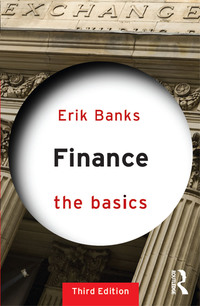Question
Hyrkas Corporation's most recent balance sheet and income statement appear below: Balance Sheet December 31, Year 2 and Year 1 (in thousands of dollars) Year
Hyrkas Corporation's most recent balance sheet and income statement appear below:
| Balance Sheet | ||||||
| December 31, Year 2 and Year 1 | ||||||
| (in thousands of dollars) | ||||||
|
| Year 2 | Year 1 | ||||
| Assets |
|
|
|
|
|
|
| Current assets: |
|
|
|
|
|
|
| Cash | $ | 180 |
| $ | 250 |
|
| Accounts receivable, net |
| 280 |
|
| 300 |
|
| Inventory |
| 250 |
|
| 220 |
|
| Prepaid expenses |
| 20 |
|
| 20 |
|
| Total current assets |
| 730 |
|
| 790 |
|
| Plant and equipment, net |
| 940 |
|
| 980 |
|
| Total assets | $ | 1,670 |
| $ | 1,770 |
|
|
|
|
|
|
|
|
|
| Liabilities and Stockholders' Equity |
|
|
|
|
|
|
| Current liabilities: |
|
|
|
|
|
|
| Accounts payable | $ | 220 |
| $ | 250 |
|
| Accrued liabilities |
| 50 |
|
| 50 |
|
| Notes payable, short term |
| 40 |
|
| 40 |
|
| Total current liabilities |
| 310 |
|
| 340 |
|
| Bonds payable |
| 210 |
|
| 300 |
|
| Total liabilities |
| 520 |
|
| 640 |
|
| Stockholders equity: |
|
|
|
|
|
|
| Common stock, $2 par value |
| 200 |
|
| 200 |
|
| Additional paid-in capital |
| 330 |
|
| 330 |
|
| Retained earnings |
| 620 |
|
| 600 |
|
| Total stockholders equity |
| 1,150 |
|
| 1,130 |
|
| Total liabilities & stockholders equity | $ | 1,670 |
| $ | 1,770 |
|
| Income Statement | |||
| For the Year Ended December 31, Year 2 | |||
| (in thousands of dollars) | |||
| Sales (all on account) | $ | 1,320 |
|
| Cost of goods sold |
| 820 |
|
| Gross margin |
| 500 |
|
| Selling and administrative expense |
| 395 |
|
| Net operating income |
| 105 |
|
| Interest expense |
| 20 |
|
| Net income before taxes |
| 85 |
|
| Income taxes (30%) |
| 26 |
|
| Net income | $ | 59 |
|
Dividends on common stock during Year 2 totaled $39 thousand. The market price of common stock at the end of Year 2 was $14.40 per share.
Required:
Compute the following for Year 2:
a. Gross margin percentage. (Round your answer to 1 decimal place.)
b. Earnings per share. (Round your answer to 2 decimal places.)
c. Price-earnings ratio. (Do not round intermediate calculations. Round your answer to 1 decimal place.)
d. Dividend payout ratio. (Do not round intermediate calculations. Round your "Percentage" answer to 1 decimal place.)
e. Dividend yield ratio. (Round your "Percentage" answer to 2 decimal places.)
f. Return on total assets. (Do not round intermediate calculations. Round your "Percentage" answer to 2 decimal places.)
g. Return on equity. (Round your "Percentage" answer to 2 decimal places.)
h. Book value per share. (Round your answer to 2 decimal places.)
i. Working capital. (Input your answer in thousands of dollars.)
j. Current ratio. (Round your answer to 2 decimal places.)
k. Acid-test (quick) ratio. (Round your answer to 2 decimal places.)
l. Accounts receivable turnover. (Round your answer to 2 decimal places.)
m. Average collection period. (Use 365 days in a year. Do not round intermediate calculations. Round your answer to 1 decimal place.)
n. Inventory turnover. (Round your answer to 2 decimal places.)
o. Average sale period. (Use 365 days in a year. Do not round intermediate calculations. Round your answer to 1 decimal place.)
p. Times interest earned ratio. (Round your answer to 2 decimal places.)
q. Debt-to-equity ratio. (Round your answer to 2 decimal places.)
Step by Step Solution
There are 3 Steps involved in it
Step: 1

Get Instant Access to Expert-Tailored Solutions
See step-by-step solutions with expert insights and AI powered tools for academic success
Step: 2

Step: 3

Ace Your Homework with AI
Get the answers you need in no time with our AI-driven, step-by-step assistance
Get Started


